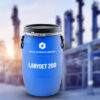Revealing the Role of Ingredients in Face Masks
Face masks have become an integral part of skincare routines, offering various benefits for diverse skin concerns. But have you ever wondered how the ingredients in face masks contribute to their effectiveness? Here, we are going to delve into the world of face mask ingredients, examining their importance and how they impact the overall efficacy of skincare products.
Understanding Key Ingredients in Face Masks
To understand the impact of ingredients on face mask effectiveness, it’s vital to familiarize ourselves with the key components commonly found in these skincare products. These ingredients work synergistically to address specific skincare concerns and provide a revitalizing experience for your skin.
- Clay: Purifying and Detoxifying Clay, such as kaolin, bentonite, or French green clay, is renowned for its ability to draw out impurities, excess oil, and toxins from the skin, leaving it purified and refreshed.
- Hyaluronic Acid: Hydration and Plumping Hyaluronic acid is a powerful humectant that attracts and retains moisture, helping to hydrate the skin, improve elasticity, and reduce the appearance of fine lines and wrinkles.
- Antioxidants: Protecting and Rejuvenating Ingredients like vitamin C, green tea extract, or resveratrol are packed with antioxidants that shield the skin from environmental damage, promote collagen production, and enhance overall skin radiance.
Finding Reliable Suppliers of Face Mask Ingredients
When it comes to manufacturing face masks, sourcing high-quality ingredients from reliable suppliers is paramount. Here are some essential factors to consider when selecting a face mask ingredient supplier:
- Quality Assurance: Look for suppliers that adhere to stringent quality control measures, ensuring the ingredients are pure, safe, and meet industry standards.
- Range of Ingredients: Choose suppliers that offer a wide selection of face mask ingredients, allowing you to explore different formulations and cater to various skincare needs.
- Certifications and Accreditation: Verify if the supplier holds relevant certifications, such as ISO, GMP, or FDA registrations, demonstrating their commitment to quality and compliance.
FAQs:
Frequently Asked Questions about Face Mask Ingredients
- Can I create my own face mask using household ingredients? While some DIY face masks can be made using common household ingredients like honey, yogurt, or oats, it’s essential to be cautious and considerate of your skin type and any specific sensitivities or allergies you may have. Patch testing and consulting with a dermatologist is highly recommended.
- How can I determine if a face mask ingredient is suitable for my skin? Understanding your skin type and specific concerns is crucial when selecting face mask ingredients. Research individual ingredients, perform patch tests, and observe any reactions before including them into your skincare routine.
- Are natural ingredients always better for face masks? Natural ingredients can offer unique benefits, but it’s necessary to remember that both natural and synthetic ingredients can be effective in face masks. Focus on selecting ingredients that address your skincare needs, whether they are derived from nature or created synthetically.
- Can face masks cause skin irritation? While face masks are generally safe for most individuals, some people may experience skin irritation or allergic reactions to specific ingredients. It’s crucial to read the ingredient list carefully, avoid known allergens, and patch test new products before applying them to your entire face.
- How often should I use a face mask? The frequency of face mask usage depends on your skin type and the specific mask you are using. It’s generally recommended to use a face mask 1-2 times per week, but follow the instructions provided by the product manufacturer for the best results.
- Can face mask ingredients expire? Yes, face mask ingredients can expire over time. It’s important to check the expiration dates on both individual ingredients and finished face mask products. Using expired ingredients or masks can lead to reduced efficacy or potential skin reactions. So you should always prioritize freshness and discard expired products.
By delving into the impact of ingredients on face mask effectiveness, we have gained valuable insights into the role they play in achieving healthy and rejuvenated skin. Remember to choose face mask ingredients that align with your specific skincare concerns, seek reliable suppliers for quality ingredients, and always prioritize patch testing to ensure compatibility with your skin.
When manufacturing face masks, partnering with reliable suppliers of high-quality ingredients is essential. Look for suppliers that prioritize quality assurance, offer a wide range of ingredients, and hold relevant certifications and accreditations. This ensures that your face masks are formulated with safe and effective ingredients, resulting in products that deliver positive skincare results.
As you explore the world of face mask ingredients, remember that individual skin types and sensitivities vary. It’s vital to conduct patch tests, consult with dermatologists or skincare professionals, and listen to your skin’s needs when incorporating new ingredients into your routine.
Consult with skincare professionals for personalized advice and recommendations, and make sure that you listen to your skin’s feedback to create a skincare routine that works best for you.














